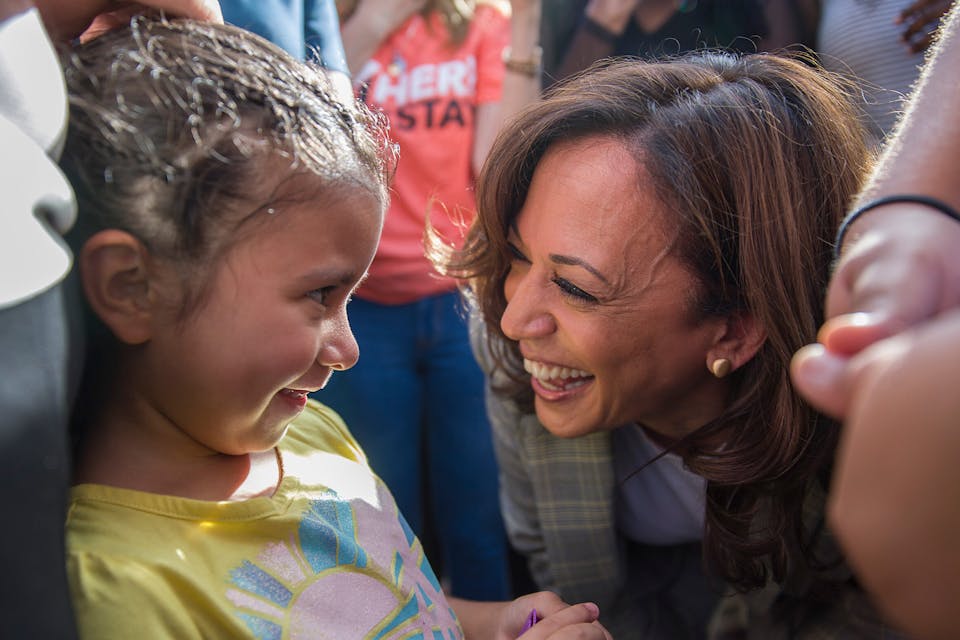
November 18, 2020
Kamala, Mamale
Why do Yiddish speakers refer to children by terms of endearment seemingly meant for adults?
America’s vice-president-elect has a family nickname that she says she’s fond of. It’s “Momala,” and it rhymes with Kamala and was given her, so we’ve been told, by her two stepchildren, the children of her Jewish husband Douglas Emhoff. Whether they coined it as a fusion of Ma and Kamala, or whether they knew that—generally spelled “Mamale” or “Mamaleh”—it’s a Yiddish term of endearment for a mother, remains, according to the media, an unresolved issue.
What the media have failed to point out is the odd fact that Yiddish mamale—literally, “little mother,” a word composed of mama and the diminutive suffix –le—is used by Yiddish and Yiddish-influenced speakers more as a form of address for children than for mothers, for whom there are more common endearments. (Mamashe and mamenyu are two of them.) Hearing a woman hidden from sight in the next aisle of the supermarket say, “Mamaleh, itst koyft men nisht keyn kendy bars,” “Mamaleh, we’re not buying candy bars now,” you would be right to assume she was talking to her small daughter and not to her elderly mother.
Or else to her son. Calling a little boy mamaleh, “little mother,” is perfectly normal in Yiddish, as it is in Israeli Hebrew. The reverse, however, is not the case. Although you can also call a boy tataleh or “little father,” you would not use it for a girl. It’s similar to bubbele, “little grandmother,” the “bubbeleh” known to many American Jews and even some non-Jews as a way of saying, sometimes affectionately and sometimes dismissively, “sweetheart” or “pal.” You wouldn’t address anyone as zeydele, “little grandfather,” unless he was your grandfather for real.